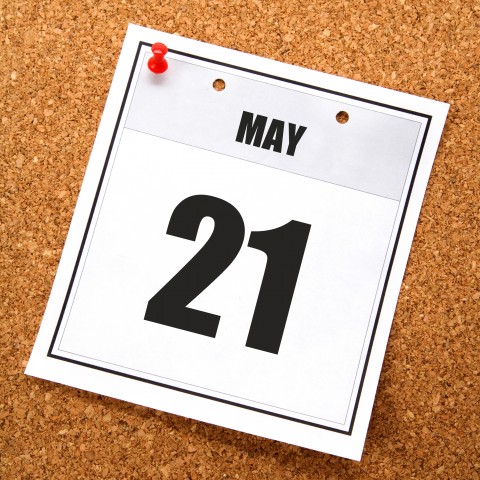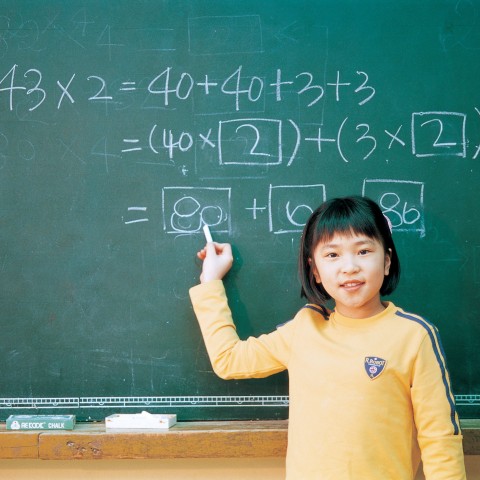Each day is filled with events, big and small, that are worth being remembered; every day of our lives can be unique and special. If you’ve just gotten started learning Chinese, there might be times when you wish to express dates in Chinese to specify important events. Indeed, being able to express a date accurately is essential to everyday life. This is why learning the Chinese calendar, as well as how to say dates in Chinese, is so important as you learn the language.
In this article, we’ll go over how to write dates in Chinese characters, as well as dates in Chinese pinyin, so that you’re never at a loss!
In Chinese, the use of dates is incredibly simple and convenient. As long as you put your brain to work, you’ll master it in no time. Talking about dates in Chinese, knowing the Chinese numbers will greatly complement your understanding—feel free to check out our article about Chinese numbers. Now, get ready to hunt some treasure with us in this vital step of your Chinese learning journey!
Table of Contents
- How are Dates Written in Chinese?
- How to Read Dates in Chinese: Years
- How to Say the Months in Chinese
- Talking About the Day in Chinese
- How to Say the Days of the Week
- Must-Know Phrases for Months and Dates in Chinese
- Bonus: Learn How to Find Your Animal of the Year in Chinese
- Conclusion: How ChineseClass101 Can Help You Master Chinese
1. How are Dates Written in Chinese?
Dates written in Chinese are organized based on cardinal numbers, and when a date is expressed, the order is as follows: 年 – 月- 日 (nián – yuè – rì) or year – month – day.
In Chinese: 我是1998年出生的。
Pinyin: Wǒ shì yī jiǔ jiǔ bā nián chū shēng de.
In English: I was born in 1996.
In Chinese: 我的生日是八月三十号。
Pinyin: Wǒ de shēng rì shì bā yuè sān shí hào.
In English: My birthday is on August 30.
Dates are essential for everyone to learn.

2. How to Read Dates in Chinese: Years
It’s very simple to read a date in Chinese. While reading the year, all you need to do is read every single number out loud in order from left to right. And lastly, add 年 (meaning “year” in English) to the end. Here are a few examples for you to practice:
- 1990[年]: 一九九零[年] (yī jiǔ jiǔ líng [nián])
- 2008[年]: 二零零八[年] (èr líng líng bā [nián])
- 2019[年]: 二零一九[年] (èr líng yī jiǔ [nián])
- 1976[年]: 一九七六[年] (yī jiǔ qī liù [nián])
- 2020[年]: 二零二零[年] (èr líng èr líng [nián])
3. How to Say the Months in Chinese
- January: 一月 (yī yuè)
- February: 二月 (èr yuè)
- March: 三月 (sān yuè)
- April: 四月 (sì yuè)
- May: 五月 (wǔ yuè)
- June: 六月 (liù yuè)
- July: 七月 (qī yuè)
- August: 八月 (bā yuè)
- September: 九月 (jiǔ yuè)
- October: 十月 (shí yuè)
- November: 十一月 (shí yī yuè)
- December: 十二月 (shí èr yuè)
Examine your schedule carefully and remember the important dates!
4. Talking About the Day in Chinese
All thirty-one days:
- 1st: 一号 / 一日 (yī hào / yī rì)
- 2nd: 二号 / 二日 (èr hào / èr rì)
- 3rd: 三号 / 三日 (sān hào / sān rì)
- 4th: 四号 / 四日 (sì hào / sì rì)
- 5th: 五号 / 五日 (wǔ hào / wǔ rì)
- 6th: 六号 / 六日 (liù hào / liù rì)
- 7th: 七号 / 七日 (qī hào / qī rì)
- 8th: 八号 / 八日 (bā hào / bā rì)
- 9th: 九号 / 九日 (jiǔ hào / jiǔ rì)
- 10th: 十号 / 十日 (shí hào / shí rì)
- 11th: 十一号 / 十一日 (shí yī hào / shí yī rì)
- 12th: 十二号 / 十二日 (shí èr hào / shí èr rì)
- 13th: 十三号 / 十三日 (shí sān hào / shí sān rì)
- 14th: 十四号 / 十四日 (shí sì hào / shí sì rì)
- 15th: 十五号 / 十五日 (shí wǔ hào / shí wǔ rì)
- 16th: 十六号 / 十六日 (shí liù hào / shí liù rì)
- 17th: 十七号 / 十七日 (shí qī hào / shí qī rì)
- 18th: 十八号 / 十八日 (shí bā hào / shí bā rì)
- 19th: 十九号 / 十九日 (shí jiǔ hào / shí jiǔ rì)
- 20th: 二十号 / 二十日 (èr shí hào / èr shí rì)
- 21st: 二十一号 / 二十一日 (èr shí yī hào / èr shí yī rì)
- 22nd: 二十二号 / 二十二日 (èr shí èr hào / èr shí èr rì)
- 23rd: 二十三号 / 二十三日 (èr shí sān hào / èr shí sān rì)
- 24th: 二十四号 / 二十四日 (èr shí sì hào / èr shí sì rì)
- 25th: 二十五号 / 二十五日 (èr shí wǔ hào / èr shí wǔ rì)
- 26th: 二十六号 / 二十六日 (èr shí liù hào / èr shí liù rì)
- 27th: 二十七号 / 二十七日 (èr shí qī hào / èr shí qī rì)
- 28th: 二十八号 / 二十八日 (èr shí bā hào / èr shí bā rì)
- 29th: 二十九号 / 二十九日 (èr shí jiǔ hào / èr shí jiǔ rì)
- 30th: 三十号 / 三十日 (sān shí hào / sān shí rì)
- 31st: 三十一号 / 三十一日 (sān shí yī hào / sān shí yī rì)
In Chinese: 周末
Pinyin: zhōu mò
In English: weekend
In Chinese: 工作日
Pinyin: gōng zuò rì
In English: weekdays
Additional notes: As you can see, all days can be expressed through Chinese numbers, with the word 号 or 日 following behind. 号 is usually used informally when saying dates in Chinese in daily life, and 日 is used formally for dates in Chinese writing and sometimes in daily life as well.
5. How to Say the Days of the Week
In Chinese: 周一 / 礼拜一 / 星期一
Pinyin: zhōu yī / lǐ bài yī / xīng qī yī
In English: Monday
In Chinese: 周二 / 礼拜二 / 星期二
Pinyin: zhōu èr / lǐ bài èr / xīng qī èr
In English: Tuesday
In Chinese: 周三 / 礼拜三 / 星期三
Pinyin: zhōu sān / lǐ bài sān / xīng qī sān
In English: Wednesday
In Chinese: 周四 / 礼拜四 / 星期四
Pinyin: zhōu sì / lǐ bài sì / xīng qī sì
In English: Thursday
In Chinese: 周五 / 礼拜五 / 星期五
Pinyin: zhōu wǔ / lǐ bài wǔ / xīng qī wǔ
In English: Friday
In Chinese: 周六 / 礼拜六 / 星期六
Pinyin: zhōu liù / lǐ bài liù / xīng qī liù
In English: Saturday
In Chinese: 周日 /礼拜天 / 礼拜日 / 星期日 /星期天
Pinyin: zhōu rì / lǐ bài tiān / lǐ bài rì / xīng qī rì / xīng qī tiān
In English: Sunday
Additional note: As you can see, there are three different forms when “week” is expressed when talking about Chinese weekdays. The difference is that both 礼拜 and 星期 are used more informally in daily life, especially 礼拜 which means “chapel” and originated from the influence of western religion. The most formal is 周; a little less formal is 星期; the least formal is 礼拜.
6. Must-Know Phrases for Months and Dates in Chinese
You need to know when your school starts!
In Chinese: 你什么时候开学?
Pinyin: Nǐ shén me shí hòu kāi xué?
In English: When does your school start?
In Chinese: 你在二月十四号有什么安排吗?
Pinyin: Nǐ zài èr yuè shí sì hào yǒu shén me ān pái ma?
In English: Do you have any plans for February 14th?
Why not ask the person out on a romantic Valentine’s Day date?
In Chinese: 你什么时候有空?
Pinyin: Nǐ shén me shí hòu yǒu kòng?
In English: When will you be free?
In Chinese: 我只有周五晚上有空。
Pinyin: Wǒ zhī yǒu zhōu wǔ wǎn shàng yǒu kòng.
In English: I am only free on Friday night.
In Chinese: 那我们约七月五号晚上见吧。
Pinyin: Nà wǒ men yuē qī yuè wǔ hào wǎn shàng jiàn ba.
In English: Let’s meet on July 5 at night.
In Chinese: 我想在五月八号安排预约。
Pinyin: Wǒ xiǎng zài wǔ yuè bā hào ān pái yù yuē.
In English: I want to schedule an appointment on August 5.
In Chinese: 今天是几号?
Pinyin: Jīn tiān shì jǐ hào?
In English: What day is it?
It’s always important to keep your loved ones’ birthday in mind and give them a sweet birthday cake!
In Chinese: 你的生日是什么时候?
Pinyin: Nǐ de shēng rì shì shén me shí hòu?
In English: When is your birthday?
7. Bonus: Learn How to Find Your Animal of the Year in Chinese
Do you know that Chinese years are based on twelve animals?
One fun fact about dates in Chinese calendars is that Chinese years have a unique traditional expression, which is based on the Chinese Zodiac as a twelve-year cycle, and each year represents an animal.
To find out which animal is associated with a certain year, be ready to do a bit of math. Here’s what you need to do:
– Divide the number of the year by 12.
– Find the remainder of the division. (Considering the number of the year may not be perfectly divided by 12, you’ll get a remainder between 0 and 11.)
– Check the list below to see which animal corresponds to the remainder.
Remainder and Chinese zodiac in accordance:
- 0: Monkey 猴 (hóu)
- 1: Rooster 鸡 (jī)
- 2: Dog 狗 (gǒu)
- 3: Pig 猪 (zhū)
- 4: Rat 鼠 (shǔ)
- 5: Ox 牛 (niú)
- 6: Tiger 虎 (hǔ)
- 7: Rabbit 兔 (tù)
- 8: Dragon 龙 (lóng)
- 9: Snake 蛇 (shé)
- 10: Horse 马 (mǎ)
- 11: Goat 羊 (yáng)
For example, let’s find out what animal 1990 represents. Follow our step-by-step guide.
Step 1: Divide 1990 by 12.
1990/12 = 165.8333…
Step 2: Ignore the decimals and take the quotient 165.
Step 3: Find the remainder of the division with this formula: Year – (12 x quotient without decimals) = remainder.
1990 – (12 x 165) = 10
Step 4: Look at the list above. The remainder 10 corresponds to Horse. Now we know that 1990 is the Year of the Horse.
Let’s try another example and find out what animal 2016 represents.
Step 1: Divide 2016 by 12.
2016/12 = 168
Step 2: Take the quotient 168.
Step 3: Find the remainder.
2016 – ( 12 x 168 ) = 0.
Step 4: Look up at the list. The remainder 0 corresponds to Monkey. Now we know that 2016 is the Year of the Monkey.
Here are the most recent twelve years in Chinese Zodiac. You can try to practice using the steps above to see if you can get the answers right.
2019 – Year of Pig 猪年 (zhū nián)
2018 – Year of Dog 狗年 (gǒu nián)
2017 – Year of Rooster 鸡年 (jī nián)
2016 – Year of Monkey 猴年 (hóu nián)
2015 – Year of Goat 羊年 (yáng nián)
2014 – Year of Horse 马年 (mǎ nián)
2013 – Year of Snake 蛇年 (shé nián)
2012 – Year of Dragon 龙年 (lóng nián)
2011 – Year of Rabbit 兔年 (tù nián)
2010 – Year of Tiger 虎年 (hǔ nián)
2009 – Year of Ox 牛年 (niú nián)
2008 – Year of Rat 鼠年 (shǔ nián)
Now, are you able to find your own animal according to the year you were born? As you can see, birth dates in Chinese hold a lot of meaning.
8. Conclusion: How ChineseClass101 Can Help You Master Chinese
If you’ve followed along with this article, you must have grasped the essence of expressing dates in Chinese and leveraged your Chinese skills another rung up the ladder. Do you feel more comfortable writing dates in Chinese characters now? Let us know in the comments; we always look forward to hearing from you!
As you might imagine, there’s much more in the Chinese language to explore and learn. If you wish to acquire more fortune in this learning journey, why not give ChineseClass101.com a try? Here, we offer you a wide spectrum of resources and a spectacular learning experience; you’re just one click away from starting your magical journey right away!



















